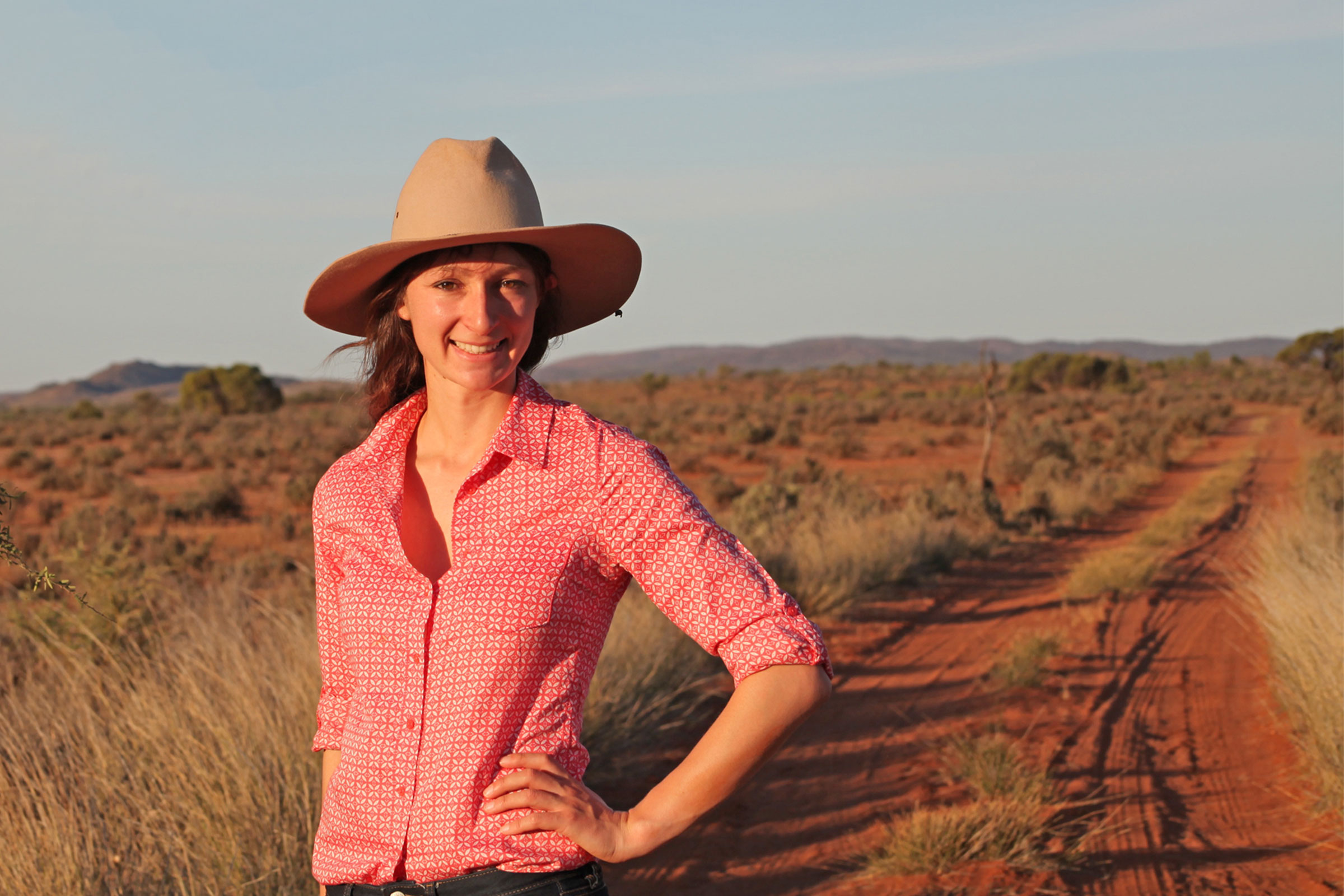Pushing your sleeves up and getting on with the job. It’s what we’re all about here at Charles Sturt University. It’s about doing. And there are few things as important when it comes to the doing, as providing people with food. As a result, agriculture has played a huge role in shaping Australia’s history. In fact, it’s an image etched into the Australian psyche: the farmer, transforming the outback to raise his crops or livestock. But it tends to be a ‘he’ in that picture, doesn’t it? Not anymore. As agriculture forges into the future, women in agriculture are also playing a key role. They’re finding ways to meet the needs of our communities while preserving the environment and increasing sustainability.
So let’s meet some of the women in agriculture – the women changing agriculture.
Leading the drive towards sustainability
Take Anika Molesworth. She’s a two-time Charles Sturt University graduate. A thought leader. A researcher in international agricultural development. And a sought-after keynote speaker.
Has Anika won any awards, you ask? Yeah, just a few.
- 2015 Young Farmer of the Year
- 2016 Al Gore Climate Reality Leader
- 2017 NSW Young Achiever Award for Environment and Sustainability
- 2018 NSW/ACT Regional Achievement and Community Award for Agricultural Innovation
Don’t tell her we said so, but she’s a bit of an inspiration. (She’s even done a TED Talk.)
“I have an unwavering love for what I do. Rural Australia is so beautiful, yet so fragile. The people in these places are so resilient, yet so vulnerable. I also have great conviction for my cause – to create truly sustainable and resilient food and farming systems. I want to see healthy landscapes supporting prosperous farm businesses and vibrant rural communities. My future depends on it, and so does the future of the next generation of farmers.”
Anika’s interest in agriculture and sustainability began after she witnessed a decade-long drought on her family’s sheep farm near Broken Hill in far western New South Wales. She later began a career seeking ways to build resilience in fragile farming systems. Ways to help rural communities stay vibrant.
“I wanted to make a positive difference to a sector I care deeply about. To do that I knew I would have to get the right skills in my tool belt.”
Study driving innovation
Anika studied a Bachelor of Agricultural Business Management1 and a master’s degree focused on sustainable agriculture with Charles Sturt University. And it was these experiences that helped shape how she approached her career.
“Firstly, my time with Charles Sturt equipped me with critical and creative perspectives. Secondly, it fostered systems thinking and encouraged me to never stop exploring and questioning. Moreover, I was given some fantastic abilities and a knowledge bank I’ve been able to take out into the world.”
As part of her master’s, Anika joined a project with the Australian Centre for International Agricultural Research. She moved to the town of Savannaket in Southern Laos to develop her understanding of Southeast Asian farming systems. Her research included investigating how farms were adapting to climate change.
Anika’s interest in climate change saw her establish Climate Wise Agriculture. This is a knowledge sharing platform that helps to facilitate the transfer of information and skills regarding climate change and farming.
She also helped establish Farmers for Climate Action. The organisation is an alliance of farmers and leaders in agriculture who work to ensure Australia takes the actions necessary to address climate damage and supports the farming community. Since its launch, the group has built a tremendous network of supporters, has run climate smart masterclasses and also sent delegations to Parliament House to discuss best strategies for a bright farming future.
The future is (more) female
When it comes to female representation in agriculture, there’s still work to be done. As the President of the National Farmers’ Federation (NFF), Fiona Simson, points out.
“Currently, women comprise around 40 per cent of the agricultural workforce but make up only 18 per cent of management roles and around two per cent of CEO positions. This is out of step with other comparable industries. It’s time that women are equally represented at the level where decisions are taken that shape the future of our industry and rural and regional Australia more broadly.”
Ready to become one of the change-making women in agriculture?
At Charles Sturt, agricultural education is in our blood. We’ve been doing it for more than 120 years. What’s more, in the latest government research report, we received a ranking of above world standard for our research in agricultural science.
It all means that when you study agriculture with us, you know you’re learning at the cutting edge of the industry.
So, are you ready to get to work? The future is yours.

Creating a world worth living in
What does a better world look like to you? Does it mean finding a cure for illnesses, improving education, making new discoveries, leading a movement or developing innovative technologies? Or does it mean finding ways to meet the needs of our communities while preserving the environment and increasing sustainability?
Our wide range of courses will give you the skills and industry knowledge so you can be the change you want to see in the world. Follow your heart, get qualified and land a job you’ll love with Charles Sturt University. Let’s get to work!
1Cricos: 057781F


You must be logged in to post a comment.